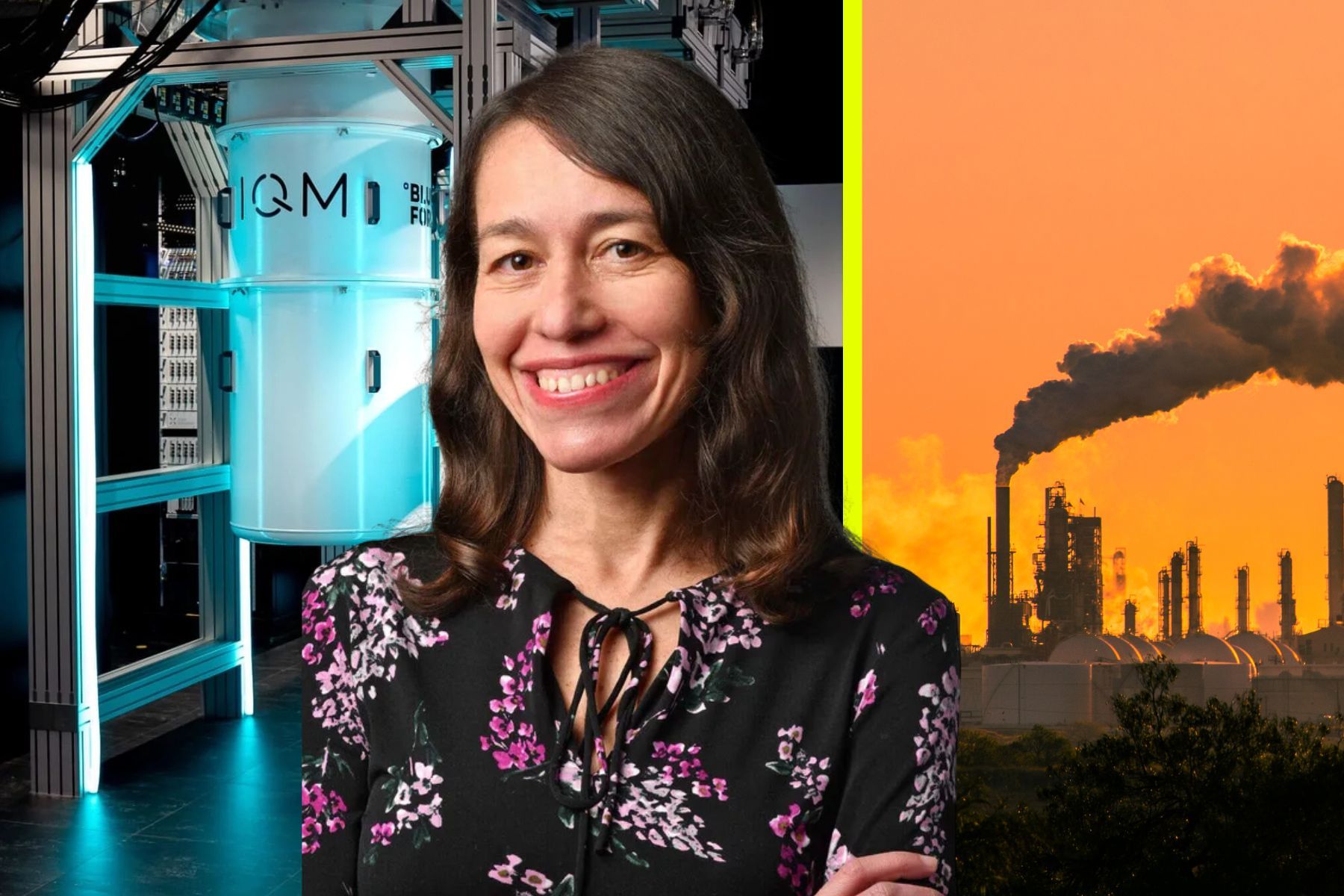‘Quantum computing is climate tech,’ says World Fund. We asked IQM what they think.
The term 'climate tech' is becoming more elastic, as startups and VCs alike rebrand and broaden their horizons beyond EVs and green energy.<br><br>But can quantum computing really help us solve climate change as some investors propose? <br><br>We spoke to Europe's leading quantum computing startup, IQM, to deep deeper into the green credentials of this potentially world-changing technology.<br><br>
.png)

“Quantum computing is climate tech,” Danijel Višević, general partner at World Fund, exclaimed at The Drop event in Malmö this week.
World Fund, which boasts Europe’s largest climate tech investment vehicle, has backed two companies that sit outside the typical scope of climate investments.
Among its portfolio are Space Forge, which aims to produce materials in space, and IQM, Europe’s best-funded quantum computing company.
Quantum computers harness the unique atomic-level dynamics of quantum physics to process information, allowing them to tackle certain problems much faster than classical computers.
But is quantum computing really going to help us solve climate change? We asked the experts at IQM to find out more.
Disclaimer: World Fund is an investor in IQM. The interviews and quotes referenced were gathered separately and without coordination.
A double-edged sword
While still in its early stages, quantum computing could help solve complex climate-related problems, says Dr Ines de Vega, physicist and VP for quantum solutions at IQM.
“Quantum computers may not directly reduce CO2 emissions, but can accelerate solutions to problems where classical computers reach their limits,” De Vega told Impact Loop via email.
Quantum computing could help tackle climate challenges by improving battery chemistry for EVs, making fertiliser production more energy efficient, and enhancing climate models with more accurate simulations, says the executive.
Researchers also see potential in optimising power grids, logistics, and energy networks – efficiencies that could cut emissions across industries. But there are potential downsides too.
The rebound effect
Quantum computers could require vast amounts of energy to run, especially as they scale, warns De Vega.
While some experts believe quantum machines will be more energy efficient than traditional computers, others are sceptical.
“The ability for quantum computers to reduce energy consumption with respect to classical computers for the same task remains contested in the community, and very much dependent on advances in the quantum computing hardware and associated infrastructure,” said De Vega.
Even if future quantum computers are more energy efficient, they could spark a negative feedback loop, whereby they raise overall energy demand by unlocking new, power-hungry problems.
“It is important to consider potential rebound effects [of more powerful quantum computers],” said De Vega. “If large-scale fault-tolerant quantum computers provide unprecedented computational power, they will inevitably be used to address problems that were previously unsolvable – and which therefore had no associated energy cost.
“Solving such new classes of problems may increase overall computational demand and thus energy consumption, even if each task is more efficient on a quantum computer.”
Climate money for quantum qubits
Whether quantum computers will be a net positive or negative for the climate remains uncertain, and will likely depend largely on how they’re engineered and how they’re deployed.
But that uncertainty hasn’t prevented the buy-in of some climate tech investors, including Planet First Partners, which led a $75m (€63m) Series C investment into UK-based quantum computing company Riverlane in 2024, and World Fund which led IQM’s €128m Series A funding round in July 2022.
Daria Saharova, founding partner at World Fund, said at the time: “This investment aligns with our commitment to back only companies with the highest climate performance potential (CPP) so that our portfolio can save two gigatonnes of emissions yearly by 2040 – the equivalent to four percent of all global emissions.”
World Fund also participated in IQM’s $320m (€272m) Series B earlier this month, the largest round ever raised by a European quantum startup.
The departure of many European climate tech VCs from the traditional scope of climate investments points to a broader repositioning of the sector.
Climate tech’s rebrand
World Fund has embraced new labels of late.
“Our thesis is DSR – decarbonisation, security, and resilience,” Višević said during The Drop panel.
Pale Blue Dot, the Swedish climate tech VC behind the event, scrapped the ‘climate’ label altogether earlier this year.
"The word climate has become synonymous with a very narrow set of problems and how to invest, which we don’t subscribe to,” the firm wrote in a newsletter. "Due to this, we no longer call ourselves a climate fund.”
Climate tech startups, too, are positioning themselves as ‘security’ or ‘resilience’ plays in a bid to attract investment.
"This trend is really real," said Robina von Stein, principal at Baltic climate tech VC firm Contrarian Ventures.
Von Stein says she understands that using language like "resilience" may help communicate a startup’s broader potential and unlock investment. But she also stresses the importance of staying grounded in mission. Contrarian Ventures, for instance, is resolute in its identity as a climate tech investor.
"We're not going to pivot to defence or resilience suddenly; climate tech is the defining challenge we’ve committed to helping founders solve," she says.
Whether quantum computers end up cutting emissions or just guzzling more energy is still an open question. Investors like World Fund and Planet First Partners are betting that the technology will tilt net-positive – but that bet rests on hardware breakthroughs that are still years away.
Get full access to Europe's new platform for impact news
- Quality journalism, interviews, investor profiles and deep-dives
- Daily newsletter with top stories, latest funding rounds and roundup to keep you in the loop
Keep reading – get in the loop!
- Håll dig i loopen med vårt dagliga nyhetsbrev (gratis!)
- Full tillgång till daglig kvalitetsjournalistik med allt du behöver veta inom impact
- Affärsnätverk för entreprenörer och investerare med månatliga meetups
Fortsätt läsa – kom in i loopen!
- Håll dig i loopen med vårt dagliga nyhetsbrev (gratis)!
- Full tillgång till daglig kvalitetsjournalistik med allt du behöver veta inom impact
- Affärsnätverk för entreprenörer och investerare med månatliga meetups









